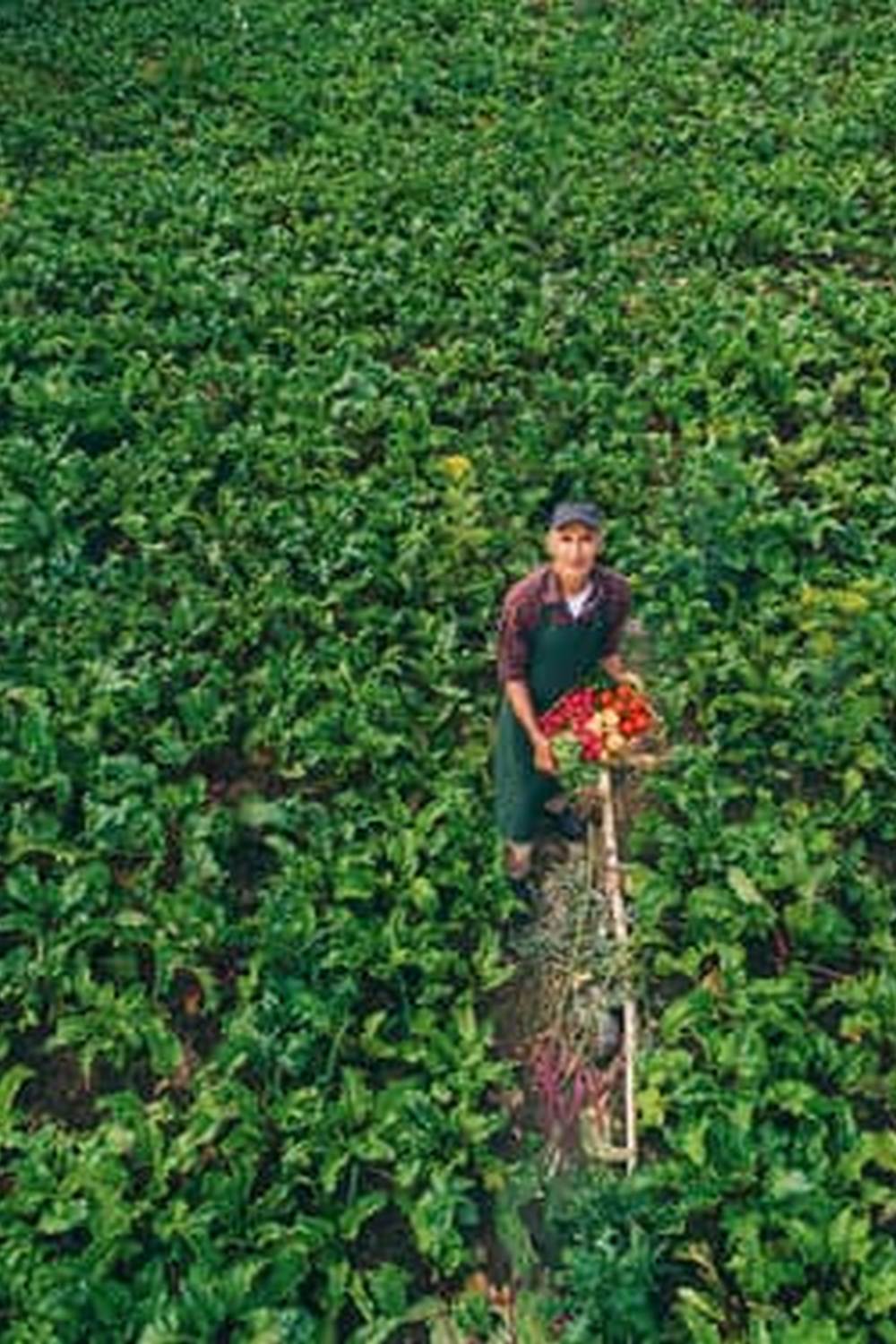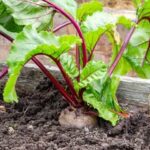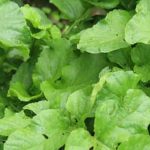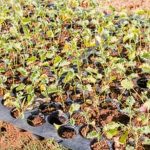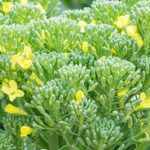Vegetable gardening in Northwest Florida offers a unique and rewarding experience for both novice and seasoned gardeners. With its warm climate and rich soil, Northwest Florida provides an ideal environment for a variety of vegetables to thrive. From tomatoes to cucumbers to peppers, there is no shortage of options for gardeners looking to cultivate their own produce in this region.
One of the key factors to consider when starting a vegetable garden in Northwest Florida is the climate. The warm temperatures and ample sunlight can be advantageous for plant growth, but also pose challenges such as pests and diseases. By selecting the right vegetables that are well-suited to this climate, gardeners can increase their chances of success and enjoy a bountiful harvest.
In this article, we will explore the best vegetables to grow in Northwest Florida, soil preparation techniques, tips for choosing the right location for your garden, pest control strategies, watering techniques, harvesting and storage tips, as well as sustainability practices. Whether you are a beginner looking to start your first vegetable garden or a seasoned gardener wanting to enhance your skills, the information provided here will help you create a thriving vegetable garden in Northwest Florida.
Best Vegetables to Grow in the Climate of Northwest Florida
When it comes to vegetable gardening in Northwest Florida, choosing the right vegetables that can thrive in the local climate is essential for a successful harvest. The warm temperatures and high humidity of this region present both opportunities and challenges for gardeners. Fortunately, there are several vegetables that are well-suited to grow in the climate of Northwest Florida.
Tomatoes
Tomatoes are a popular choice for vegetable gardeners in Northwest Florida due to their versatility and ability to thrive in warm weather. With proper care and attention, tomatoes can produce an abundance of delicious fruits throughout the growing season. Varieties such as ‘Florida 91,’ ‘Homestead,’ and ‘Cherokee Purple’ are known to perform well in the region.
Peppers
Another excellent choice for vegetable gardening in Northwest Florida is peppers. Bell peppers, jalapeños, and banana peppers are just a few examples of pepper varieties that can flourish in the local climate. Peppers require well-drained soil, plenty of sunlight, and consistent watering to produce healthy fruits.
Squash
Squash plants, including zucchini, yellow squash, and butternut squash, also do well in the warm climate of Northwest Florida. These fast-growing vegetables enjoy full sun and fertile soil. Gardeners should keep an eye out for pests such as squash bugs and vine borers which can be common in the area.
By selecting the best vegetables suited for the climate of Northwest Florida and providing them with proper care, vegetable gardeners can enjoy a bountiful harvest year after year. With a bit of knowledge and effort, growing vegetables in this region can be a rewarding experience for local gardeners.
Soil Preparation and Composting Tips for Successful Vegetable Gardening
When it comes to successful vegetable gardening in Northwest Florida, one of the most important factors to consider is soil preparation. The sandy soil common in this region can be improved through proper techniques to ensure your vegetables thrive. Here are some tips for preparing your soil for a successful vegetable garden:
- Test your soil: Before planting any vegetables, it’s important to test your soil to determine its pH levels and nutrient content. This will help you understand what amendments may be necessary for optimal plant growth.
- Add organic matter: Sandy soils in Northwest Florida benefit greatly from the addition of organic matter such as compost, manure, or peat moss. These materials help improve soil structure, retain moisture, and provide essential nutrients for healthy plant growth.
- Use raised beds: If your soil quality is particularly poor or drainage is a concern, consider using raised beds for your vegetable garden. This allows you to have more control over the soil quality and provides better growing conditions for your plants.
Composting is another valuable practice for vegetable gardening in Northwest Florida. Not only does composting help reduce waste and improve soil health, but it also provides a free source of nutrient-rich material for your garden. Here are some tips for successful composting in your vegetable garden:
- Collect kitchen scraps: Start by collecting kitchen scraps such as fruit and vegetable peelings, eggshells, coffee grounds, and yard waste like grass clippings and leaves.
- Layer materials: To create a balanced compost pile, alternate layers of green materials (nitrogen-rich) like kitchen scraps with brown materials (carbon-rich) like dried leaves or straw.
- Aerate regularly: Turning or aerating your compost pile every few weeks helps speed up the decomposition process by introducing oxygen to the mix.
By following these soil preparation and composting tips, you can set the foundation for a successful vegetable garden in Northwest Florida. Remember that healthy soil leads to healthy plants, so investing time and effort into preparing your soil will pay off with bountiful harvests throughout the growing season.
Choosing the Right Location for Your Vegetable Garden in Northwest Florida
When it comes to vegetable gardening in Northwest Florida, choosing the right location for your garden is crucial for the success of your crops. The first step is to find a spot that receives plenty of sunlight, as most vegetables require at least 6-8 hours of direct sunlight daily. Avoid placing your garden in shaded areas or under trees that can block the sun.
Another important factor to consider when selecting a location for your vegetable garden in Northwest Florida is the soil quality. The soil should be well-draining to prevent waterlogging, which can lead to root rot and other issues. You can test the soil pH and nutrient levels using a testing kit available at local garden centers or through your county extension office.
Additionally, keep in mind that proximity to a water source is essential for easy irrigation. Whether you plan to use a hose, watering can, or drip irrigation system, having easy access to water will make it more convenient to keep your vegetables hydrated. Consider setting up rain barrels to collect rainwater for eco-friendly watering practices.
| Aspect | Consideration |
|---|---|
| Sunlight | Ensure at least 6-8 hours of direct sunlight daily |
| Soil Quality | Test pH and nutrient levels; ensure well-draining soil |
| Water Source | Consider proximity for easy irrigation access; set up rain barrels for water conservation |
Pest Control and Disease Management Strategies for Northwest Florida Vegetable Gardens
Pest control and disease management are crucial aspects of maintaining a successful vegetable garden in Northwest Florida. With the warm and humid climate of this region, various pests and diseases can affect your plants if not properly managed. One effective strategy is to practice integrated pest management (IPM), which emphasizes prevention, monitoring, and control to minimize damage from pests and diseases.
When it comes to pest control, implementing physical barriers such as row covers can help protect your vegetables from common pests like aphids, caterpillars, and beetles. Additionally, introducing beneficial insects like ladybugs and lacewings can assist in controlling harmful insect populations naturally. It is essential to regularly inspect your plants for any signs of pest infestation and take prompt action to prevent further damage.
Disease management is equally important in maintaining a healthy vegetable garden. To prevent diseases such as blight, powdery mildew, and root rot, it is recommended to avoid overhead watering which can promote fungal growth. Proper spacing between plants, adequate air circulation, and crop rotation can also help reduce the risk of diseases spreading throughout your garden.
In cases where diseases do occur, promptly remove infected plants to prevent further contamination. By following these strategies, you can effectively manage pests and diseases in your Northwest Florida vegetable garden for a bountiful harvest.
| Pest Control Strategies | Disease Management Techniques |
|---|---|
| Implement physical barriers like row covers | Avoid overhead watering to prevent fungal growth |
| Introduce beneficial insects for natural pest control | Proper spacing between plants for adequate air circulation |
| Regularly inspect plants for signs of pest infestation | Crop rotation to reduce the risk of disease spread |
Watering and Irrigation Techniques for Vegetables in Northwest Florida
When it comes to vegetable gardening in Northwest Florida, proper watering and irrigation techniques are essential for the success of your garden. The climate in this region can be hot and humid, which means that plants may require more water to thrive. Overwatering can lead to issues such as root rot, while underwatering can result in stunted growth and poor yields. Finding the right balance is crucial.
One effective technique for watering vegetables in Northwest Florida is drip irrigation. This method delivers water directly to the base of the plants, reducing evaporation and minimizing water waste. Drip irrigation systems can be set on a timer, ensuring that your plants receive a consistent amount of water without any effort on your part. This is especially useful during dry spells or when you’re away from your garden.
In addition to using drip irrigation, mulching is another important practice for conserving moisture in your vegetable garden. Mulch helps retain soil moisture, suppresses weeds, and moderates soil temperature-all of which are particularly beneficial in the hot climate of Northwest Florida.
Organic options such as straw, leaves, or grass clippings not only help with water retention but also add nutrients to the soil as they break down over time. Remember to monitor soil moisture regularly and adjust your watering schedule accordingly to ensure the health of your vegetable garden in Northwest Florida.
Harvesting and Storage Tips for Northwest Florida Vegetable Gardeners
Harvesting fresh vegetables from your garden in Northwest Florida can be a rewarding experience. To ensure that your produce stays fresh and delicious for as long as possible, it is important to follow proper harvesting and storage techniques. Whether you are a seasoned gardener or just starting out, these tips will help you make the most of your home-grown bounty.
Harvesting Tips
When it comes to harvesting vegetables in Northwest Florida, timing is key. Different vegetables have different optimal harvest times, so it’s essential to know when each crop is ready to be picked. For example, tomatoes should be harvested when they are fully ripe and have reached their desired color, while leafy greens like lettuce and spinach can be harvested continuously as needed. Be sure to use sharp scissors or pruners to avoid damaging the plant while harvesting.
Storage Tips
Proper storage is crucial for preserving the freshness and flavor of your home-grown vegetables. After harvesting, it’s important to clean and prepare your produce before storing it. Remove any excess dirt or debris and trim off any damaged or wilted parts.
Vegetables like carrots and beets can be stored in the refrigerator crisper drawer with their tops removed, while root vegetables like potatoes and sweet potatoes should be kept in a cool, dark place with good ventilation. Leafy greens should be washed, dried thoroughly, and stored in a breathable container with a damp paper towel to maintain crispness.
Preservation Techniques
If you find yourself with an abundance of vegetables from your garden in Northwest Florida, consider exploring preservation techniques such as freezing, pickling, or canning. Freezing vegetables like beans, corn, and peas is a simple way to enjoy them year-round.
Pickling cucumbers or peppers can add a tangy twist to meals, while canning tomatoes or salsa allows you to savor the taste of summer even during the cooler months. Experiment with different preservation methods to find what works best for your harvest and cooking preferences.
By following these harvesting and storage tips, you can maximize the enjoyment of your vegetable gardening efforts in Northwest Florida by ensuring that your produce stays fresh and flavorful for longer periods of time. Remember that each vegetable has its own specific requirements for harvest and storage conditions; understanding these differences will help you prolong the shelf life of your home-grown bounty.
Sustainability and Eco-Friendly Practices in Vegetable Gardening in Northwest Florida
When it comes to sustainable and eco-friendly practices in vegetable gardening in Northwest Florida, there are several strategies that gardeners can implement to reduce their environmental impact and promote a more sustainable lifestyle. Here are some tips to help you cultivate your vegetables while treading lightly on the environment:
- Composting: One of the best ways to reduce waste and improve soil health in your vegetable garden is through composting. By creating your own compost from kitchen scraps, yard waste, and other organic materials, you can enrich your soil with valuable nutrients and improve its overall structure.
- Water Conservation: Northwest Florida is known for its hot and humid climate, which means that water conservation is essential for vegetable gardeners in the region. Consider installing a rain barrel to collect rainwater for irrigation or investing in a drip irrigation system to deliver water directly to the roots of your plants.
- Organic Pest Control: Instead of relying on harsh chemicals to control pests in your vegetable garden, opt for natural alternatives such as companion planting, beneficial insects, or homemade organic pesticides. This will help protect pollinators and beneficial organisms while keeping harmful chemicals out of the environment.
By incorporating these sustainability practices into your vegetable gardening routine, you can not only grow healthy and delicious produce but also contribute to a healthier environment for future generations. Remember that every small step towards eco-friendly gardening makes a difference in building a more sustainable world for all.
Community Resources and Events for Vegetable Gardeners in Northwest Florida
As a vegetable gardener in Northwest Florida, you are not alone in your journey. There are a variety of community resources and events available to help support and guide you in your gardening endeavors. Local gardening clubs and organizations offer a wealth of knowledge and expertise, allowing you to connect with like-minded individuals who share your passion for vegetable gardening in this specific region.
One such resource is the Northwest Florida Vegetable Gardening Association, which hosts regular meetings, workshops, and events focused on all aspects of vegetable gardening. This organization provides a platform for gardeners to exchange ideas, tips, and experiences, creating a strong community of support for those looking to enhance their skills and knowledge in vegetable gardening in Northwest Florida.
In addition to organized groups, many local nurseries, botanical gardens, and agricultural extension offices offer educational programs, seminars, and demonstrations geared towards vegetable gardeners. These resources can provide valuable information on topics such as soil health, pest control strategies, watering techniques, and more. By taking advantage of these community resources and events, you can deepen your understanding of vegetable gardening in Northwest Florida and cultivate a successful and thriving garden for years to come.
Frequently Asked Questions
When Should I Plant My Garden in Northwest Florida?
In Northwest Florida, the best time to plant your garden is typically in the early spring or fall. This timing allows for cooler temperatures that are more favorable for plant growth and establishment. It’s important to take into account the specific climate conditions in your area and adjust your planting schedule accordingly.
What Is the Best Month to Plant Vegetables in Florida?
The best month to plant vegetables in Florida can vary depending on the specific vegetable you are looking to grow. Generally, most vegetables can be planted in Florida starting from late winter to early spring.
These months provide a balance of warm temperatures and adequate sunshine for optimal growth. It’s important to research the specific planting requirements for each type of vegetable you want to grow.
Can You Grow Vegetables Year Round in Florida?
Yes, it is possible to grow vegetables year-round in Florida due to its mild climate. During the winter months, cool-season crops such as lettuce, broccoli, and carrots thrive in Florida’s moderate temperatures.
As the weather warms up in spring and summer, warm-season crops like tomatoes, peppers, and cucumbers can be planted. With proper planning and care, you can enjoy a continuous harvest of fresh vegetables throughout the year in Florida.

If you’re looking to get into vegetable gardening, or are just looking for some tips on how to make your current garden better, then you’ve come to the right place! My name is Ethel and I have been gardening for years. In this blog, I’m going to share with you some of my best tips on how to create a successful vegetable garden.

